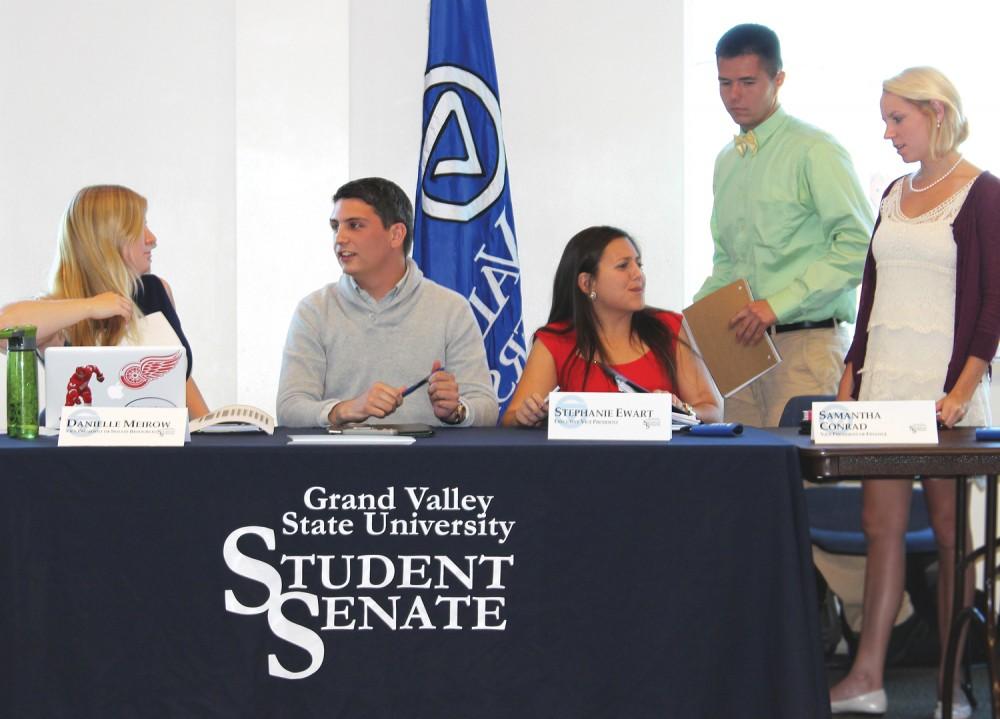UAS, Student Senate work to fill empty seats

GVL / Laine Girard President Ricardo L. Benavidez along with other Cabinet members including Vice President for Senate Resources Danielle Meirow (left), Executive Vice President Stephaine Ewart, and Vice President for Finance Samantha Conrad (right).
Sep 18, 2013
Throughout the school year, the University Academic Senate and Student Senate work hard to create a satisfactory educational experience for the students of Grand Valley State University through student and faculty involvement. With the year just beginning, several student representative seats remain unoccupied.
UAS promotes student involvement and participation by including five student representatives, who
are regular senators with the ability to engage in debates and have full voting rights.
“Since many of the issues about which UAS makes recommendations affect students, either directly or
indirectly, it is important that student perspectives be represented,” said Karen Gipson, professor of
physics and UAS chair.
Because involvement is voluntary and sometimes time-consuming, student motivation to remain
involved and active can occasionally be lacking, even as the UAS and Student Senate push the issue
throughout the year.
“I’ve heard that in the past students haven’t always attended the committee meetings,” Gipson said. “I
am pleased to see that Student Senate is committed to ensuring a stronger student voice in shared
government here at Grand Valley.”
The Student Senate, which remains focused on student participation, is broken up into seven
committees. Each committee has at least one open seat so that incoming freshmen and transfer
students have the opportunity to join in the fall.
Currently, the Senate has eight open positions and 15 applications for those stations. A competitive
interviewing process is underway and being conducted by Vice President of Senate Resources Danielle
Meirow and her committee. The results of interviews will be announced at the senate meeting Sept. 19
in the Pere Marquette meeting room.
“We are excited to welcome new senators to the body,” said Emma Moulton, vice president of Senate
Public Relations. “The more students that we have involved the better.”
The UAS is the highest faculty governance body, having the power to deal with curriculum, the
academic organization of the university, faculty personnel policy, the budget, and other issues
considered relevant to academic affairs.
Also tied in with the UAS, the Executive Committee of the Senate is the steering committee for all UAS
matters. All members of the ECS are also members of the UAS. At this time, the ECS has one opening
due to a faculty resignation over the summer—a matter that will be settled during a special election
early this fall to fill the vacancy.























